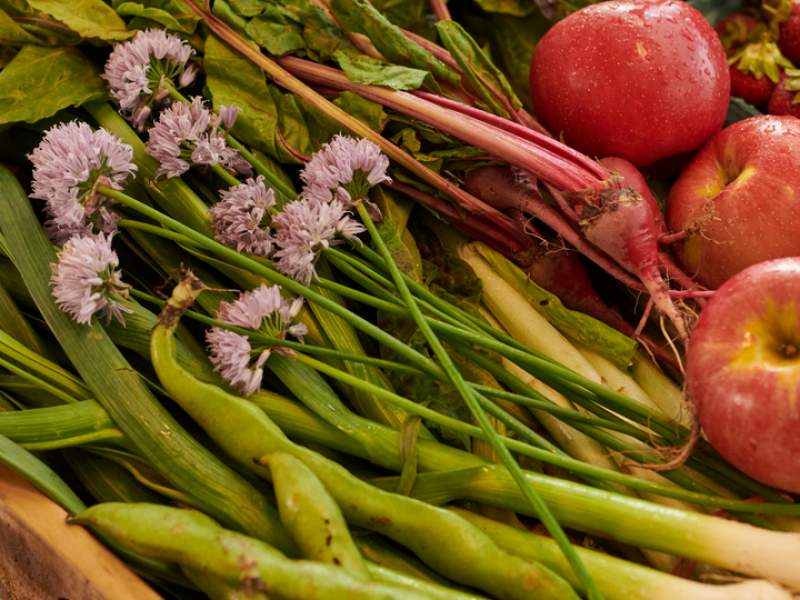Live Green, Eat Green
We believe it's just as important to eat green as it is to live green.

We recently discovered an article featuring the eye-opening statistic that livestock responsible for red meat and dairy account for roughly 14.5% of the world’s greenhouse gases each year. That means that worldwide livestock farming contribution of greenhouse gases per year is on par with the emissions from all the vehicles on the road, ships in the sea, and planes in the air. You read that correctly.
It's safe to say most people don't realize they're leaving a personal carbon footprint with their diet choices. It's no wonder when many have grown up learning about the food chain and being taught that beef and other meat products are necessary staples in our diets. Studies are now showing that meat products are not required for a healthy diet and producing them is also not good for the environment. So, what can you do to mitigate your personal food footprint? Don't worry, this isn't where we try to convince you to go vegetarian, pescatarian or vegan (unless you're up for the challenge). It's ok if you're not, but you should know that beef and lamb have the biggest climate footprint per gram of protein, while plant-based foods tend to have the smallest impact. Pork and chicken are somewhere in the middle. To be a mindful eater means to remember this the next time you're choosing your protein source.
Here are some simple steps that you can take to eat less red meat, help the environment and reduce your personal carbon footprint:
- Eat less red meat and dairy (Try chicken, eggs or pork if you must eat meat).
- Treat yourself to a wild caught seafood dinner instead of steak night.
- Challenge yourself to have one meatless dinner a week. (Think hearty eggplant parm or a bold veggie stir fry).
- Try a meat substitute, products like the Impossible Burger make it hard to notice the difference.
- Find a dairy substitute, but do your research. Almonds require six times as much water to grow than oats.
We don’t want you to give up all the foods you love, but we think it's important that we all be more conscious about what goes into the foods that are meant to nourish our bodies. If you'd like to take it a step further, invite friends and family to join in the challenge and make it a celebration of doing all the good you can.












